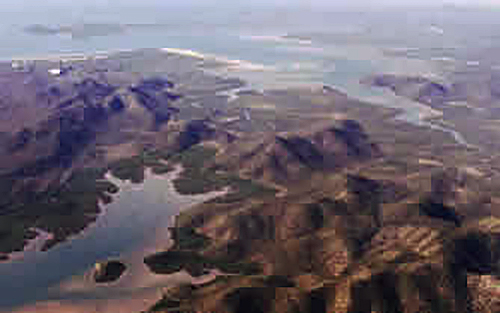This case study involves judicial review proceedings in the Federal Court of Australia undertaken in 2008 by Waratah Coal Inc against a refusal of a $5.3 billion coal mine, railway and port by the Federal Environment Minister.
The proposal was referred on 31 July 2008 to the Minister, at the time Peter Garrett, under the Environment Protection and Biodiversity Conservation Act 1999 (Cth) (EPBC Act).
The project involved establishing a major new coal mine, railway and port to export coal for electricity production. The coal was to be sourced from Waratah Coal’s mining tenements near the town of Alpha in the Galilee Basin, Central Queensland.
Waratah Coal had, at the time, identified an inferred resource of 3.12 billion tonnes of coal within its North Alpha (EPC1053) and South Alpha (EPC1040) mining tenements in the Galilee Basin. The open cut mine was intended to have an initial export capacity of 25 million tonnes per annum (Mtpa), with the capability to expand substantially to 50 Mtpa and beyond.
The company claimed that, at coal prices prices at the time, the project would have “potentially generated over A$10B of export revenue and over A$900M royalties per year for the State of Queensland.”
The proposal involved the construction of a major new coal export port in the Shoalwater and Corio Bay Ramsar wetlands, an undeveloped part of the Queensland coastline though part of a military training area. The area was listed as a wetland of international significance under the Ramsar Convention.
The Minister rejected the proposal on 15 September 2008 under s 74B of the EPBC Act, stating:
“This proposal would have clearly unacceptable impacts on the internationally recognised Shoalwater and Corio Bay Ramsar wetlands and the high wilderness value of Shoalwater which is acknowledged in its Commonwealth Heritage listing.
The impacts of the rail line and port facility are simply too great to effectively mitigate, and would destroy the ecological integrity of the area. They are impacts that cannot be reduced with offsets or managed through approval conditions.
Destruction of fragile wilderness areas cannot be reversed. As Minister for the Environment I am required by law to protect the environment from actions on Commonwealth land.
I have carefully considered the advice from my department on the broader proposal and agree that the plan to run a rail line through Shoalwater and build a coal port in the location proposed is clearly unacceptable.
I wish to make it abundantly clear that I have rejected this proposal because of the impacts the route of the rail line and the location of the coal port would have on the environment.
… This decision does not prevent an alternative proposal being lodged that does not have unacceptable impacts on Ramsar and heritage values, for consideration under the Act. I would encourage Waratah Coal to consider alternative sites for the port.”
Waratah Coal applied for judicial review of the Minister’s decision, arguing that the decision was invalid because it was outside of the time limit imposed by the EPBC Act.
Collier J dismissed the application, ruling:
“Notwithstanding the detailed submissions of the applicant, a plain reading of the EPBC Act demonstrates clearly that failure of the Minister to comply with a time limit prescribed by the EPBC Act does not affect the validity of a decision under the Act made outside a set time limit, including decisions made under s 74B. No contortion of the legislation or speculation as to the manner in which s 74B is to be construed in the broader context of Ch 4 Pt 7 detracts from the natural and ordinary meaning of the words in s 156(3) and s 518(1) EPBC Act [which provide that failure to comply with a time limit set in the Act does not affect the validity of a decision].”
Key documents
- Referral of the proposal under the EPBC Act.
- Initial Advice Statement by Waratah Coal Inc in support of the referral.
- Decision that proposal was clearly unacceptable.
- Application for Order of Review filed by Waratah Coal Inc.
- Outline of submissions by Waratah Coal Inc.
- Outline of submissions by the Minister.
- Judgment of Collier J dismissing the application: Waratah Coal Inc v Minister for the Environment, Heritage and the Arts [2009] FCA 1870.
Following the unsuccessful challenge to the Minister’s refusal, the company submitted a revised proposal (EPBC 2009/4737) that no longer proposed to construct a rail link and coal export port in Shoalwater Bay Ramsar Wetland.




